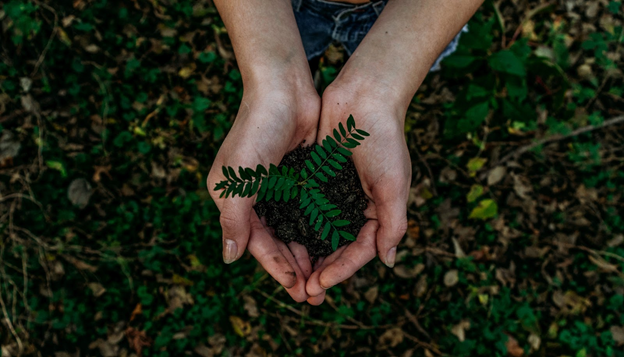Going Green - Small Changes Can Add Up to Conserve Resources!
Feb 11th 2020
If you are like many others, you may be working toward living a more “green” lifestyle. Being “green” means becoming more aware of products and chemicals to avoid, and actions that can be taken to lessen human impact on the environment. It can also lead to more sustainability in daily life. Generally, it is easy not to notice how small, everyday decisions can add up and contribute to environmental pollution and excess waste, as well as higher costs. There are many simple changes in home and daily life that can make a significant difference in your environmental footprint. These choices also preserve a healthy home and community environment. Check out these tips for ways you can start improving your impact with a greener household today!
Efficient Appliances: If your appliances are reaching the point of replacement, be sure to look into energy efficient models. Energy Star can be helpful in identifying appliances that will help you conserve energy in your home. Don’t forget to look into local recycling programs before you have your old appliances hauled away!
Water Bottles: Up to 80% of single-use plastic water bottles end up in the landfill each year. If you must use single-use plastic bottles, be sure to recycle them! A more sustainable option is to filter your water at home and switch to a reusable bottle - one filter can replace around 900 bottles. Turn it into a treat by investing in a bottle in your favorite color and style.
Grocery Bags: Take stock of how many plastic bags you come home with after each trip to the grocery store. Usually, it is not an insignificant number! Plastic bags are another single use plastic item that ends up in the landfill, where they can take 10-20 years to decompose. By making the switch to reusable bags, you can greatly reduce that number. Also, reusable bags tend to be holding more than single use plastic, which means fewer trips to the car to unload your groceries!
Laundry: By washing clothes in cold water, you can help reduce stress on your water heater and the environment. While you’re at it, check the temperature of your hot water heater. Lowering the temperature by just a few degrees can save money, environmental resources, and your skin!
Electricity: Turn off lights you’re not using, and let in natural light when you can. Unplug appliances you’re not using. Make the switch to energy efficient light bulbs. Reducing your electricity can make a difference in your budget and the environment.
Reuse and Recycle: Looking to get rid of old garments? Check into your local donation centers, and donate items that are in good shape. If they can’t be donated, look for ways to repurpose them. From bags to draft stoppers to hand-me-downs, there are lots of ways to repurpose clothing you no longer wear. Evaluate other things you’re throwing away, and check to see if you can’t find another use for them. One last thing to check - can you wash and recycle it, rather than throw it away?
Shop Local: Support local businesses wherever you can. Get to know your local businesses, and find your local farmers market. Buying locally produced goods supports your community and reduces the footprint created by commercial production and shipping.
Replace your HVAC Air Filters: Improve your impact on the environment and the quality of air in your home. Keep your HVAC system working efficiently by changing your air filters on schedule. Not sure how often you should be changing it? Check out our other blog posts for more tips!
Getting to 100% green habits takes time, but these are changes you can start making today. By implementing just a few of these tips, you can help conserve both the earth’s resources and your own!





